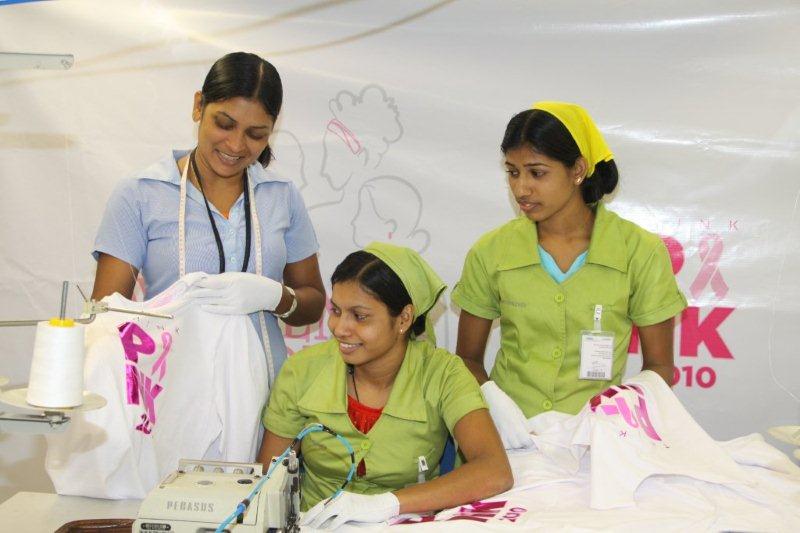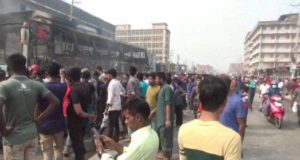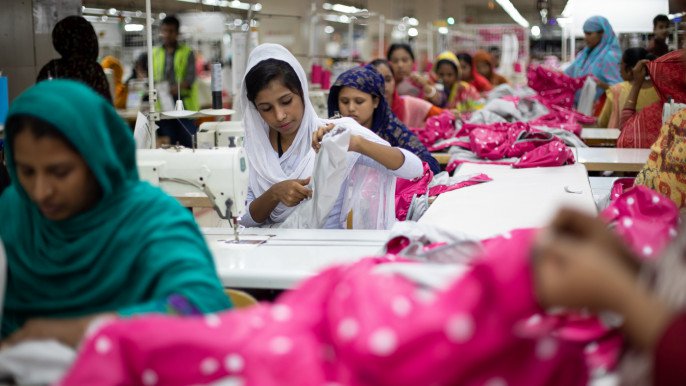Published in The Daily Observer on October 28, 2017

Most of the working mothers in the RMG (Readymade garment} sector lack maternity rights and breastfeeding support as various research reports show their children face serious obstacles in physical growth and mental development due to absence of such support.
From the Daily Observer’s investigation it was revealed that a significant number of working mothers in the RMG sector return to work too early in the post-delivery period fearing to lose their sole source of income, thus causing serious threat to their children’s health.
Experts and RMG rights activists said all Readymade Garment companies should ensure that working mothers to enjoy their maternity benefits and monthly wages.
According to the Index of Woman’s Advancement (IWA) report during the second half of 2014, Bangladesh is ranked number 2 among the 16 countries of the Asia and Pacific region in terms of women employment.
Very recently UNICEF in joint collaboration with the Government of Bangladesh launched a national initiative titled “Mothers@Work”.
Talking to the Daily Observer, Edouard Beigbeder, UNICEF Bangladesh Representative, shared his observation and said that most of the working women in the readymade garment sector are of reproductive age and many of them are mothers who are responsible for nurturing their infants.
“Most mothers fear of losing their jobs and return too early after giving birth to child before they have even fully recovered, thus many of them also stop breastfeeding their infants,” he added.
Asked about the project, he said that it aims to support maternity rights and promote breastfeeding at workplaces for the growing number of female workers in the industrial sector, especially in the country’s readymade garments (RMG) sector, which has the largest concentration of female workers.
The government has ensured maternity leave of six months for the working mothers in the public sector. As per the labour law in Bangladesh, the working mothers in public and private sector are supposed to get maternity leave for 6 months and 4 months respectively.
On the other hand, according to the labour law, working mothers in the private sector are getting four months maternity leave, which is two months less than that of the public sector resulting in discrimination.
Md Mujibul Haque, Minister of Labour and Employment, said that his Ministry fully recognizes that a strong, healthy and well cared for labour force is essential for the continued economic growth and success of the country.
Investments made to improve the lives of working mothers in the RMG sector will include medical care, paid maternity leave and others.
“I strongly believe that such opportunity will encourage women to return to work and also give their babies the best start in life,” he said over phone.
The RMG owners’ association of Bangladesh Garment Manufacturers and Exporters Association (BGMEA) said that almost 44 lakh workers are working in the 8, 200 garment factories in the country, of which 80 percent are female workers.
Nazma Akter, Labour Union Leader, talking on the Mothers@Work initiative said, “it is implemented through a partnership with the Ministry of Health and Family Welfare and the Ministry of Labour and Employment. She said that the initiative should preserve the health of mothers and newborn and simultaneously provide employment security for working women and their families.”
“Government must ensure such opportunity to every working mother in the RMG sector. We have enough information about pregnant mothers being forced to work in various garment factories” she added.
According to the UN convention, the maternity leave has been described as a right of women. In the UN Charter, the maternity, child rearing and family have been included into the state’s responsibilities.
ILO Country Director for Bangladesh, Srinivas Reddy, while speaking about the introduction of such a programme, said, “Breastfeeding should not be considered as an obstacle to productivity. We have seen that women who breastfeed are more likely to stay in their job for the longer term which is a good way of retaining the skilled workers that the RMG industry depends upon,” he said.
He also added that initially piloted in two RMG companies, DBL and Vision Apparels, efforts need to be bolstered to ensure that this programme reaches all working mothers and their children in over 5,000 RMG units scattered across Bangladesh . It will ensure the wellbeing and protection of mothers while ensure their children can have the early nutrition they deserve.
 CPD RMG Study Stitching a better future for Bangladesh
CPD RMG Study Stitching a better future for Bangladesh



